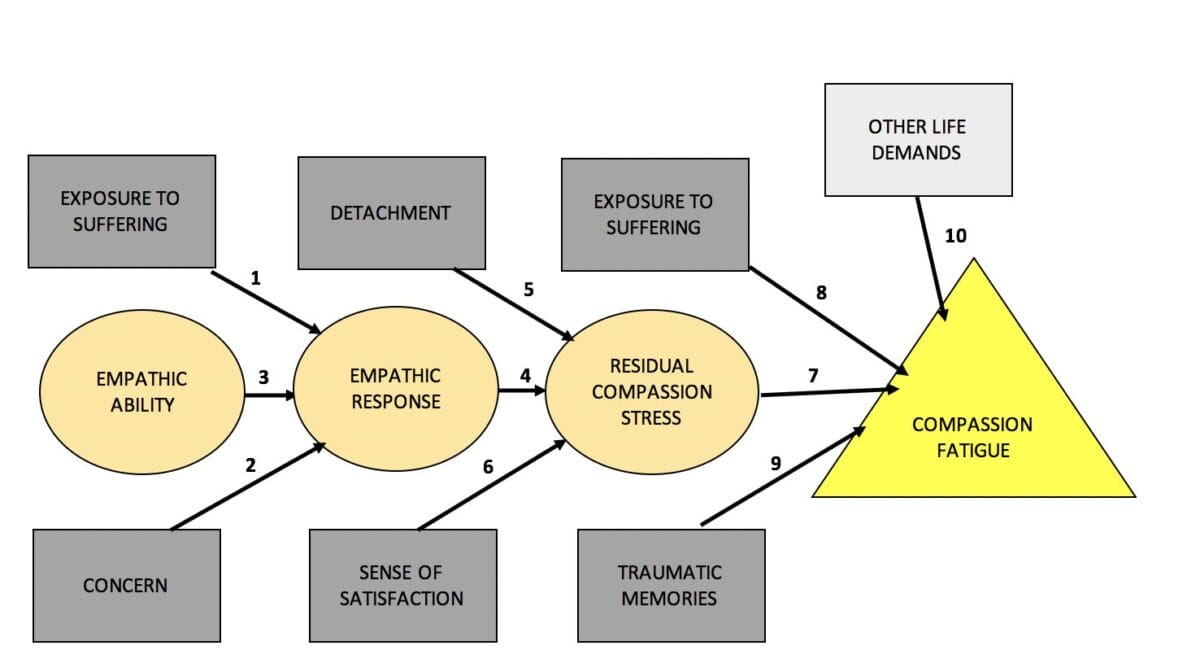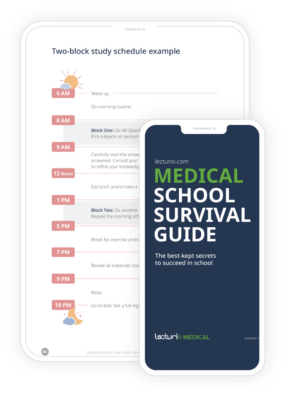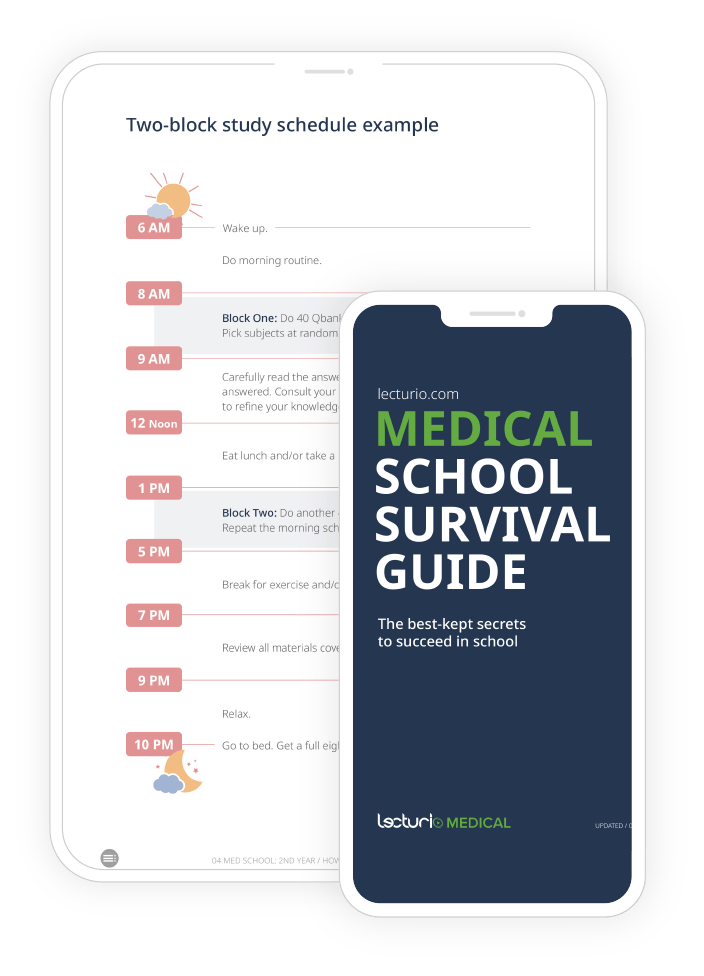Cases in the medical field can range from a generally healthy patient to the common cold to saving someone from the brink of death. The spectrum is wide and as a doctor you’re expected to know what to do in most of these cases. Apart from the effort it takes to treat patients, there are also other stressors in and out of the workplace that can deplete emotional resources.
After a long time of multiple mistakes, countless frustrations, and maybe a few tragedies, it’s hard to stay the same enthusiastic, hard-working person. It sounds sad, and that’s because it is. Due to the heavy workload, you might find yourself detaching from your practice in order to avoid being emotionally compromised for the sake of your patients. But at what cost?
What is physician burnout?
Burnout is a state of exhaustion caused by prolonged exposure to stressors. Many people compare burnout to a battery being depleted. When there’s no energy to give, you simply stop functioning. Unlike batteries, you can still continue working while burnt out, but in the long run, it can have negative lasting effects.
During the first 2 years of the COVID pandemic, 62.8% of physicians in a study reported experiencing at least one symptom of burnout. There was even a noted increase in 6.1% for reports of depression among the same sample of physicians. Another study showed that being a physician is considered as one of the most stressful jobs. So it’s not uncommon to be burnt out in this profession.
Take the Course: Psychiatry
Learn to identify complex conditions through subjective symptoms with Helen Farrell, MD from Harvard Medical School!
Due to the high stakes of a job where lives are on the line, doctors are expected to function with heavy workloads and still perform them perfectly. They have to make high-pressure decisions and discuss life-changing diagnoses with their patients. So apart from the work they do, they have to exercise compassion every step of the way.
However, in cases where doctors experience depersonalization, which is a cardinal symptom of burnout, they begin to experience what we call “compassion fatigue”.
What is compassion fatigue?
No matter how kind of a person you are, in an environment that’s stressful and heavy, being compassionate takes some amount of effort. In the hospital, these stressful situations can happen without breaks, so the energy to put in the effort will run out fast. Sometimes, it can run out before you even notice it happening. That’s why it’s important to know the symptoms of compassion fatigue.

Symptoms of compassion fatigue
As a cardinal symptom of burnout, symptoms for compassion fatigue are similar to those of burnout itself. You can feel exhausted, nauseous, experience frequent headaches, some digestive issues, and become physically sick as you become more susceptible to illnesses.
Compassion fatigue is easier to identify based on its psychological symptoms which include, but are not limited to:
- Emotional exhaustion
- Drastic mood swings
- Pessimistic beliefs or attitude
- Increased irritability
- Ruminating over the suffering of others
- Inability or reduced ability to empathize/sympathize
As a result of these symptoms, you or your co-workers with compassion fatigue may start missing work or quit altogether. Those suffering from compassion fatigue might take out their stress and frustration on other co-workers and even patients, be less focused, have problems with decision-making, and might withdraw socially during breaks or avoiding conversations in general.
In severe cases, burnout may lead to self-medicating or substance abuse.
Fatigue vs burnout
It’s easy to mistake fatigue for burnout and vice versa. A lot of the time, you’ll hear people say “I’m not burnt out, I’m just tired” and keep going to work. Like we discussed before, compassion fatigue is a part of burnout. The more compassion fatigue we get, burnout becomes more likely to happen. Burnout itself is a syndrome of symptoms whereas fatigue (any kind of fatigue) can be considered as the exhaustion of physical, mental, and emotional reserves.
So, what happens usually when we run out of energy? We rest. We step out of our work zone and think about something outside of work. We engage in hobbies or sleep it off. By the next day, our stores are replenished and we’re ready to work just as hard as before.
On the other hand, burnout can take a long time, even years, to recover from. It doesn’t go away when you sleep or rest and it involves negative thoughts which can lead to depersonalization.
5 stages of compassion fatigue
Compassion fatigue can have 5 stages according to researchers Baranowsky and Gentry.
Stage 1: The zealot phase
For those who are unaware of what a ‘zealot’ is, the word usually refers to someone who is fanatically committed to a religion or belief.
People in the zealot phase are overly enthusiastic about work. They’ll work overtime, do the jobs of other people, take in more patients, or volunteer for nothing in return.
This is a common phase among people who are new to the job. They want to do their best for their co-workers and patients. However, people fail to realize that energy is a limited resource. In the hospital, emotional energy can quickly become scarce with each patient you see. You’re not meant to expend it all at once, no matter how many caffeinated drinks you consume per day. It’s a marathon, not a sprint.
Stage 2: The irritability phase
The next phase is when people start to feel more sensitive towards the imperfections of the workplace. Even worse, they feel sensitive towards their own imperfections. The initial enthusiasm from the first few days is gone.
People in this phase begin to realize that not only are they tired, they’re also doing more work than they’re either given merit for or have the necessary abilities to accomplish.
As a healthcare worker, we study years to come close to being adequate for the job. As a result, we convince ourselves that we always have to give our best for the patients. After all, lives could be on the line. Even so, when we feel undervalued or underappreciated for these efforts, we tend to cut corners and make mistakes, often without realizing it. It’s no longer our best– it’s the bare minimum. Sometimes we may even become snappy and irritable towards patients, which they really don’t deserve.
Stage 3: The withdrawal phase
After a long time of working with little to nothing driving you to do your best, it makes sense that the next step is to step out of the situation.
Rather than being annoyed and angry, people in this phase will neglect and detach from others. This is because the exhaustion from the last phase never left. If anything, it got worse.

During this phase, individuals may find themselves being so detached from their patients that they can’t tell them apart. Patients may not even be seen as people, but as tasks to complete. This can result in patients feeling less cared for by their doctors and nurses. Workers will start spacing out, getting sick more often, and developing negative ways to cope like substance abuse. There’s also an increased risk of thoughts of self-harm and harming others.
Stage 4: The zombie phase
When withdrawing doesn’t resolve anything, people can start to feel numb. As opposed to the last stage where they would cope by withdrawing themselves from work, now they cope by going on “autopilot”. Going on ‘autopilot’ involves being so detached from work that your heart and soul are no longer in it. Similar to zombies, they’re run purely on energy that’s reserved for only basic functions.
So, people in this phase feel empty and numb, only doing the bare minimum routine to get the job done and fulfill their basic needs. Their schedule will usually be limited to eat, sleep, work, and very little of anything else.
They’ve literally depleted all their energy for compassion and they have nothing left to give. With no room for patience to hamper their frustrations, they may take it out on co-workers, staff members, friends, family, and even patients. While they may be getting the job done, the initial feelings of confidence and love they had for their role has disappeared.
Stage 5: Pathology vs maturation
The last stage results in one of two things: Getting better or getting worse.
The overwhelming burnout and feelings of loss results in a major point of change.There will come a point when you realize the impact of your fatigue.
People who get worse find the effects of their burnout to be pathological, affecting them both physically and mentally. Usually this results in them leaving the profession altogether. Sometimes they don’t (or can’t) leave the profession and stay in a perpetual state of overwhelm until it develops into a full-blown disorder or a very big problem where someone gets hurt.
On the other hand, people who get better have had the opportunity to realize the destructive cycle they are in and are able to make the necessary changes. They find ways to restore their health and commitment to the profession. For example, this could mean taking a long break, setting boundaries, going to therapy, or even leaving their workplace for another, less toxic one.
How to prevent physician burnout and compassion fatigue
Since the consequences of burnout can be life-changing and affect those around you, it’s important to prevent it from happening.
Remember that preventing burnout isn’t something you just do when you feel exhausted. It has to be incorporated into your lifestyle.
If you think you’re too busy for these things, you need to make time. Take less shifts, find a less taxing job, or anything that fits this lifestyle. Everyone is different and some will take more time to do self-care than others.
Here are a few things you can do to help prevent compassion fatigue and burnout:
#1: Think of ways to replenish and regenerate
Ask yourself: What can I do everyday that makes me feel refreshed? It can be something like watching TV shows, reading books, playing games, or just sleeping. Make sure that you have more than one activity to regenerate you. For example, on days when eating good food just doesn’t work, you can try reading a good book to improve your mood.
You can also consider mindfulness or meditation. It helps to process the things that happened today and recount the things you are grateful for. As you become more self-aware, centered, and grounded, the better you get to know what you need to cope with tiring work events.
#2: Have a good support system
Whether you’re an introvert or not, it’s important to have someone to listen and help you process life’s challenges. This support can come from family, friends, and even a pet. It’s hard being tired and sad, but it’s even worse to be tired and sad alone. So make sure you nurture and value your relationships with the people around you because they will be the ones to help you when things get tough.

Sure, it takes time and effort to be there for friends and family. But you’ll find it’s worth it when you really surround yourself with people you enjoy being around. In a way, it can replenish your energy stores as well. You can even find social support from people in your workplace, so make sure to build good work relationships.
#3: Find meaning
Remind yourself why you started in the first place. What is it about this job that made you want it in the first place? What tasks and experiences do you enjoy doing about this job?
Think about your joys, rewards, purpose, and hopes for the future. If it helps, try to think about the different things about the job that you’re grateful for. Maybe also take a minute to celebrate your “small” wins. If you find no reward from your work, work on developing habits and rewards outside of work – via hobbies, self care, and little things you enjoy.
#4: Don’t be so hard on yourself
As the frustrations and stressors pile up, your shortcomings become more apparent. Why? Because even though many stressors come from the workplace, there’s not much you can do to control it. So instead, a lot of hostility is projected inwards to things you think you could change. While self-improvement is part of preventing burnout, you can’t do it while punishing yourself for your mistakes. Self-improvement has to come from your recognition that you’re good at your job but you have the potential to be better. You have to believe in yourself before you can truly improve.
Making mistakes is a natural part of any job. While the stakes are higher in the medical setting, mistakes are inevitable. You have to treat yourself the same way you would treat a friend or co-worker. Make sure that you save some compassion for yourself before you can give it to others, even your patients.
#5: Know when to take a step back
Sometimes taking a long leave is what it takes to really think about where you are in life and where you’re going. The bigger picture can be hard to see from up-close. When you feel like your burnout symptoms are becoming severe and affecting your work, don’t feel bad for wanting out. You can take a break, even leave your workplace if you feel it is no longer providing for your emotional and growth needs. However, for many of us, leaving work isn’t an option. Sometimes it’s financial or due to other reasons.
If that’s the case, you may want to seek help in reframing your job in a way you’ll find a new sense of fulfillment or consider what skills you need to retrain yourself in. You can approach a therapist or counselor to process your thoughts about work as well. If you want to talk to someone more accessible, you can also process this with a senior or co-worker about it since they could add a new perspective about your job.
At the end of the day, it’s all about doing what’s best for you first before anything else. That doesn’t make you selfish. In the same way that eating, sleeping, and breathing come naturally, self-care should too. It’s part of being human. Being human means we make mistakes. We have limits and flaws. But it’s this humanity that allows us to truly connect with patients and drives us to do our best for them. That’s what makes us good doctors, nurses, and healthcare workers.








